#gorse fires
Text

Bealtaine | Watercolour
I was lamenting the fact that I had intended to make a Bealtaine piece to accompany my Imbolg hare but didn't get 'round to it before the day... so no time like the present! Blessed Bealtaine to you <3
#my art#bealtaine#irish rabbit#rabbit#bunny#watercolour#watercolor#may#first of summer#folklore#mythology#ireland#Irish#gorse#fire#leaping#animal art#illustration
71 notes
·
View notes
Note
Random but in light of your Gorsepaw design-- he should've lived and gotten the name Gorsefire ;; dang Tigerclawstar
this is a lovely suffix idea for him and a really cool name in general but the mental image of shrub arson it brings up is so funny to me
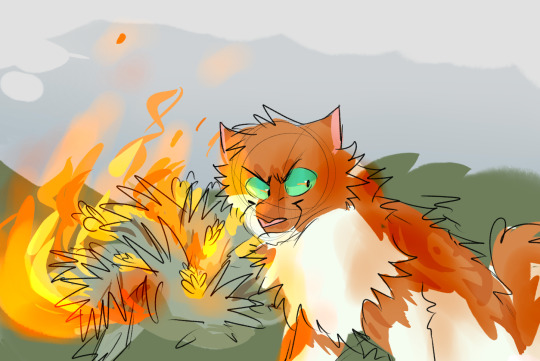
gorsefire nooo not windclan territory's flora and associated ecosystems
#gorsepaw#warrior cats#someone set fire to some gorse near me a few years ago.... maybe it was him all along..........
77 notes
·
View notes
Text

Rip bud :’(
46 notes
·
View notes
Text
Moorland Research Notes
I usually let these sit in my drafts because they're kinda messy, but no one actually knows anything about moorland, including myself shortly before starting this deep dive. So I'm just going to post this in the hopes that it's useful in some way
This post is about moorland in the UK, I have not done any research into moorland in other places, and then I focused more specifically on lowland heath.
Feel free to use this information for anything you so desire, and check out the sources I put at the bottom of this list if you'd like to learn more. I really hope this helps out WindClan Fans in particular
I do plan to condense what I've learned and chosen into a "Welcome to BB!WindClan!" type post at some point, but this is a REALLY broad post on what moorland is.
What is moorland?
Moorland is a broad term that lumps together several completely unique biomes, most of which are partially or completely reliant on the management of human beings. They are defined by low-growing flora and acidic soils, which makes them difficult for non-specialist plants to grow in.
These can be sorted further into upland or lowland, dry or wet.
Because many types of moorland are dominated by heathers, they are also called heathlands. Though the terms Moor and Heath are sometimes used interchangeably (and this is where a lot of confusion comes from), usually, Moor refers to upland/wet, and Heath refers to lowland/dry.
I have to stress a that LOT of the confusion is coming from this. Heather will grow in both, and the terms get used interchangeably, but an upland/wet moor is FUNDAMENTALLY different from a lowland/dry heath, down to the very soil.
Most specialists will open up an explanation by defining how they're using the Moor/Heath distinction, and will stick to those terms, but just keep in mind that in casual language, ALL of these biomes get called moors, and places without any heather will get called heath.
They can also touch. There are locations where upland moor slopes into lowland heath, or upland heath kisses lowland moor, and there can be very special species that exist in the transitional space between these areas. This too is yuri.
It is not a prairie. It is not a savanna. Please for the love of god stop portraying moorland as prairies and savannas
lots of purple. why he ourple? heathers and purple moorgrass.
Common heather is also called ling, flowery bell heathers are sometimes called erica, and gorse can be called whin or furze
Maritime heath, dune heath, blanket bog, upland moor, transitional upland heath... these are all frequently lumped under the same term even though they are very different.
How are moorlands managed?
Above 700 meters of altitude and in harsh weather conditions, you get montane heath. Near coastlines, you can find maritime heath. These are the only two that are completely "natural" and require no human management.
In wet moors, the elements will beat the vegetation down into peat. Above the peat is turf, the top layer which grows the visible flora. Peat = below, Turf = above. Peat has historically been used as a fuel, and if that bottom layer catches fire, IT IS DISASTROUS.
Because of this, most upland moors (which are usually wet and PACKED with peat) are managed primarily through grazing. There are even breeds of sheep and cattle who have been specially bred to thrive in upland moors-- such as the iconic highland cow. (Though overgrazing can be a problem, too.)
Sheep are used to graze back the heather (sometimes called ling), and in good modern practice, goats are brought out along with the flock to eat pioneering shrubs and saplings. Pigs are also used to control bracken and combat ex-pine plantations with scattered needles, because of their ability to churn soil.
However, controlled burns are still done in some circumstances and when required (LIKE BEFORE A HEATWAVE). Because of the serious danger, it's considered inferior to good grazing management. It's done carefully, in controlled patches, both to not set the underlayer of peat on fire and to make sure there is differently-aged patches of flora in one area to support different species of animals.
If peat catches on fire, it will burn for days or weeks... and can even smoulder underground after you THINK it's been put out.
In DRY LOWland heath, proper burning is common. Gorse and heather grows strong, woody, and flammable, and the thin layer of peat below can combine to devastating results when a wildfire does eventually break out. Large swaths of dry heather and gorse is an ecological powderkeg, even if it was only growing on mineral soil.
Worse, the older heather gets, the woodier it becomes. Woody heather can cause high-temperature fires that absolutely devastates new growth, leading to a slower recovery and causing a controlled burn to become uncontrolled real fast.
Burns are typically conducted in winter, when it's cold, and grazing animals are deployed in summer.
Cutting is also important in lowland management, literally cutting out squares of turf to expose the ground. This is good for mason bees, specifically.
Moorland. Is. Flammable. Fire risk = HIGH.
If you do not manage the moorland, the moorland will manage YOU. with FIRE.
Do NOT set the peat layer on fire. Whatever you do, do NOT let the peat get set on fire. PEAT FIRE BAD.
The controlled burning of moorland is "swaling", or a "muirburn."
Pigs and goats have special abilities when used in grazing management
Pigs are a tactical nuke
Sheep will graze heather a lot harder than cattle, causing grassy "sward". They should be kept away from it in winter.
MOORLAND IS NOT GRASSLAND. Sward BAD.
Cattle will graze moorgrass a lot harder than sheep and bite back any sheep-induced sward, but trample the soil with their heavy hooves.
Bones tell me about the funny cat environments
Victoria Holmes (the original writer of Warrior Cats, for those who have just walked in, still in your bathrobe and perhaps comically eating some sort of breakfast bagel, on a cat giving a detailed ecological lecture to a bunch of other cats) has spoken about how she based the environment of the Forest Territories on New Forest, Hampshire UK.
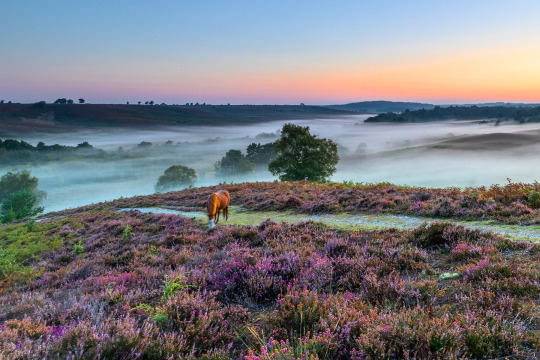
[ID: New Forest's heathland on a misty morning. It's dominated by common heather with a few sparse trees, and a New Forest Pony grazing alone.]
That means that WindClan's moor was a lowland heath, characterized by sandy soils with excellent drainage. This is consistent with the thin layer of peat, deeper layers of sandy soil and clay (as encountered by tunnelers), and lush vegetation that's seen in DOTC and Tallstar's Revenge.
If that's not enough evidence, it's also described after its destruction in these terms;

New Forest boasts some of the widest swaths of well-managed lowland heath in the entire UK. It's been managed collectively for hundreds of years, and exists in tandem with bogs and old-growth forest for miles. The heath is just as important as the trees, here!
In TNP, the forest is tragically bulldozed to create suburbs. While they were at it, they also bulldozed the geography of Great Britain because, suddenly, there is a MOUNTAIN in Southeastern England; a region notoriously flatter than the Onceler's ass
So once the Clan cats get to the Lake territories, we could be dealing with a completely different biome. They might have gone from dry, lowland heath, to wet, upland moor.
However, descriptions of the new territory are scarce, to put it lightly. In spite of the Lake Territory being the setting for the past 20 years, WindClan's land is rarely shown. When we do get a glimpse of it, like in Crowfeather's Trial, we only get told about the presence of certain species such as gorse. Because of there being no tunneling, we don't know what's exactly below the surface, either.
Occasionally though we are made aware of the presence of "moorgrass" (possibly Molinia Caerulea) and the smell of peat, pointing towards it probably being upland moor. The bigger question is actually where all the sheep are? There should be a lot of sheep here, but instead, there only seems to be horses.
Aaaaand lastly before I close out on canon material, Lungwort.
Lungwort is a herb that becomes a plot device in A Vision of Shadows. ShadowClan becomes sick with a variant of greencough, and it is said that Lungwort would be its only cure. However, it "only grows in WindClan" and the leader, Onestar, has refused to let them have this medicine.
But lungwort doesn't grow on moorland. ESPECIALLY not wet, upland moor, which we might maybe possibly be dealing with now.
Lungwort is a FOREST plant, it needs the absolute opposite conditions of a moorland. It requires moist but well-drained ground, FERTILE soil, and full or partial shade. There's no way that WindClan has it and ShadowClan doesn't, OR its neighbor ThunderClan, in the WOODS, who Onestar has no power over.
It would also poison a cat but honestly 75% of the plants they use in canon would also do that, so, whatever.
What they SHOULD have gone for is great mullein which prefers full sun and well-drained soils, so it could feasibly be found best in some parts of WindClan, regardless of which sort of moor or heath primarily makes up their territory.
What sorts of plants are found in moorlands?
In moorlands, you'll find plants that can withstand poor soil quality and full sun. In upland moors, they also have to be hardy in frequent heavy rains and high winds. Because it has conditions that so few plants are able to handle, moorland is chock-full of specialists and unique species that aren't found anywhere else!
Historically, moorland could not be used for agriculture exactly because of this. With the invention of artificial fertilizers and introduction of (invasive) pines from America, moorland is under serious threat. Even if it's just next to a pine plantation, the trees will attempt to spread.
COMMON HEATHER, also called Ling, is the big bad boy associated with most moorland, and used for a bajillion different things. First of all, it was used in construction for thatching. Second of all, it can be used as a yellow dye, especially on wool. Third, honey made from heather pollen is as thick as jelly. It's found on all sorts of moorland, and is an extremely hardy species.
BELL HEATHER, sometimes called Erica, is more commonly associated with lowland heaths. It's one of the best flowers for pollinators in the entire world, and attracts tons of insects.
GORSE, also called Whin or Furze, smells overwhelmingly like coconut. It is also covered in wicked thorns. It's highly flammable and can burn ridiculously hot, making it excellent to collect as kindle.
PURPLE MOORGRASS is associated with upland moor, but will grow basically anywhere nothing else could. It's scary hardy, surviving in acidic soil down to a PH of 2 (THAT IS THE SAME LEVEL AS YOUR STOMACH JUICE), and can grow as tall as 4 feet (and even taller, apparently, next to its bestie girls heather and gorse).
In heath, tormentil, milkwort, and heath bedstraw are indicator herbs, and wavy hair-grass, bristle bent, and vernal grasses are found here and there.
PLEASE remember that moorland is not grassland. When grasses go from sparse to common, it's a very bad sign. It means the soil is losing its acidity, and converting into a different biome.
Bramble, bracken, nettles, perennial ryegrass, and broadleaf plantain are some of the species that can indicate that a heath is becoming a grassland. A few patches or examples are fine, but if they're eating into the gorse/heather/moorgrass, it's time to call in some management.
There's also the fascinating, parasitic plant called dodder. Dodder likes to twirl around heather before suffocating it to death. Cool plant! I don't know where else to mention dodder. I just think it's neat.
Threats to Moorland
I mentioned the problems in passing through this whole post, but to restate, these are some of the major problems that moorland faces.
AFFORESTATION: When trees are added.
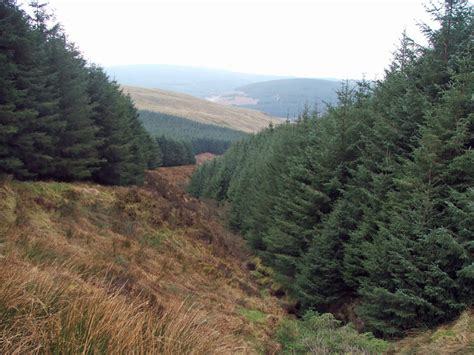
[ID: A sitka spruce plantation on upland moor in Scotland, followed by a clip of Markiplier who condemns it in no uncertain terms.]
American pines, such as the douglas fir and sitka spruce don't belong here. These are commercial plantations and they exist to make money, but are touted as "eco friendly" because uneducated rubes think 1 Tree = 1 Ecology Point. They provide diddly or squat to native wildlife, destroy valuable moorland which can negatively impact carbon capture, and let fools pat themselves on the back for doing nothing but put government money into a logging company's pocket.
(there are also only 3 native conifers to Great Britain-- the scotch pine, the common juniper, and the yew. All others are introduced.)
But even worse than being a wooden blight, these are wooden blights that spread. If there's a plantation nearby, it WILL begin to encroach on the surrounding moorland, and the traditional sheep and cattle will not eat the saplings. GOATS are being added to herds in modern grazing management to combat this new problem.
The native birches (silver and downy) plus the scotch pine will also move in when moorland is not managed! They are pioneer species, which success the moor into secondary woodland.
OVERBURNING: When moorland is burned too much.
Even if you don't set the peat on fire and cause an even bigger problem, too much burning is bad for the biome as well. This is often done to serve hunters, who want to perpetually keep common heather in the youngest state possible to support grouse populations... and grouse populations alone.
Properly managed moorland will be burned in sections, NOT all at once, so that there's a healthy mix of plants in different ages to provide shelter and food to the animals that live in the environment. Too much burning will decimate the insect population, and prevent peat buildup.
("Hold on Elder Bones, why is peat good?" Carbon capture and soil acidity! It's super efficient at combating global warming, and peaty soils will prevent the moor from quickly succeeding into a grassland.)
NUTRIENT ENRICHMENT: De-acidifying the soil and making the soil welcoming to other species
Specifically from dog and horse droppings, but also from the addition of fertilizers. The biggest thing that can be a problem here is how conservationists try to balance public access to these spaces with the "recreation pressure" from having too many visitors.
SOURCES
I have had to do SO MUCH READING. OH my god, this was not easy research, please appreciate this big, beautiful list of resources I am giving to you
GREAT BRITISH LIFE: A really good intro to heathland
(This article was written by Katie Piercy from the Cheshire Wildlife Trust)
WILDLIFE TRUST: Heathland and Moorland, Moorland, Lowland Heath, Cheshire Heath, Bell Heather, The Roaches
BUGLIFE: Upland heath as it relates to insect populations
(website contains insect-centric guides to many unique UK biomes)
NEW FOREST: Heathland information and history
NATIONAL TRUST: Bickerton Hill and the Restoration Work
WIKIPEDIA: The Roaches, Yorkshire Dales, Heath, Moorland
(listen kids, wikipedia is always a great place to start. Just make sure to double-check the claims you see there.)
COUNTRY LIFE: A flowery article that describes the North York Moors
(this one's just really pleasant!)
AN ACTUAL LOWLAND HEATH ECOLOGIST: Dr. Sophie Lake's Presentation for the NPMS
(This is the most detailed and proper source on this list, if you want to learn some serious info, PLEASE check this one out)
210 notes
·
View notes
Text
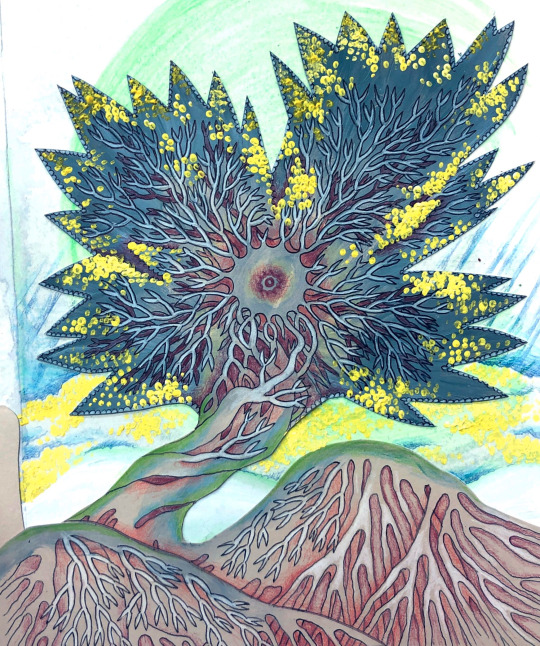
a beating heart in winter (2024)
gorse blooms like sulfurtone fire in the snow. gorse has haemoglobin. I know it doesn't bleed, but
#art#artists on tumblr#mixed media#collage#acrylic painting#colored pencil#traditional art#plant art#plants#botanical art#botany#nature#nature art#gorse#wildflowers#wormart
89 notes
·
View notes
Text
Cryptidclaw's WC Prefixes List!
Yall said you were interested in seeing it so here it is!
This is a collection of mostly Flora, Fauna, Rocks, and other such things that can be found in Britain since that’s where the books take place!
I also have other Prefixes that have to do with pelt colors and patterns as well!
Here’s a link to the doc if you dont want to expand a 650 word list on your Tumblr feed lol! the doc is also in my drive linked in my pined post!
below is the actual list! If there are any names you think I should add plz tell me!
EDIT: I will update the doc with new names as I come up with them or have them suggested to me, but I wont update the list on this post! Plz visit my doc for a more updated version!
Animals
Mammal
Badger
Bat
Bear
Beaver
Bison
Boar
Buck
Calf
Cow
Deer
Elk
Fawn
Ferret
Fox
Goat
Hare
Horse
Lamb
Lynx
Marten
Mole
Mouse
Otter
Rabbit
Rat
Seal
Sheep
Shrew
Squirrel
Stoat
Vole
Weasel
Wolf
Wolverine
Amphibians
Frog
Newt
Toad
Reptiles
Scale
Adder
Lizard
Snake
Turtle
Shell
Birds
Bird
Down
Feather
Albatross
Bittern
Buzzard
Chaffinch
Chick
Chicken
Coot
Cormorant
Corvid
Crane
Crow
Curlew
Dove
Duck
Dunlin
Eagle
Egret
Falcon
Finch
Gannet
Goose
Grouse
Gull
Hawk
Hen
Heron
Ibis
Jackdaw
Jay
Kestrel
Kite
Lark
Magpie
Mallard
Merlin
Mockingbird
Murrelet
Nightingale
Osprey
Owl
Partridge
Pelican
Peregrine
Petrel
Pheasant
Pigeon
Plover
Puffin
Quail
Raven
Robin
Rook
Rooster
Ruff
Shrike
Snipe
Sparrow
Starling
Stork
Swallow
Swan
Swift
Tern
Thrasher
Thrush
Vulture
Warbler
Whimbrel
Wren
Freshwater Fish
Fish
Bass
Bream
Carp
Dace
Eel
Lamprey
Loach
Minnow
Perch
Pike
Rudd
Salmon
Sterlet
Tench
Trout
Roach
Saltwater fish and other Sea creatures (would cats be able to find some of these? Probably not, I don't care tho)
Alge
Barnacle
Bass (Saltwater version)
Bream (Saltwater version)
Brill
Clam
Cod
Crab
Dolphin
Eel (Saltwater version)
Flounder
Garfish
Halibut
Kelp
Lobster
Mackerel
Mollusk
Orca
Prawn
Ray
Seal
Shark
Shrimp
Starfish
Sting
Urchin
Whale
Insects and Arachnids
Honey
Insect
Web
Ant
Bee
Beetle
Bug
Butterfly
Caterpillar
Cricket
Damselfly
Dragonfly
Fly
Grasshopper
Grub
Hornet
Maggot
Moth
Spider
Wasp
Worm
Trees
Acorn
Bark
Branch
Forest
Hollow
Log
Root
Stump
Timber
Tree
Twig
Wood
Alder
Apple
Ash
Aspen
Beech
Birch
Cedar
Cherry
Chestnut
Cypress
Elm
Fir
Hawthorn
Hazel
Hemlock
Linden
Maple
Oak
Pear
Poplar
Rowan
Redwood
Spruce
Willow
Yew
Flowers, Shrubs and Other plants
Berry
Blossom
Briar
Field
Flower
Leaf
Meadow
Needle
Petal
Shrub
Stem
Thicket
Thorn
Vine
Anemone
Apricot
Barley
Bellflower
Bluebell
Borage
Bracken
Bramble
Briar
Burnet
Buttercup
Campion
Chamomile
Chanterelle
Chicory
Clover
Cornflower
Daffodil
Daisy
Dandelion
Dogwood
Fallow
Fennel
Fern
Flax
Foxglove
Furze
Garlic
Ginger
Gorse
Grass
Hay
Heather
Holly
Honeysuckle
Hop
Hyacinth
Iris
Ivy
Juniper
Lavender
Lichen
Lilac
Lilly
Mallow
Marigold
Mint
Mistletoe
Moss
Moss
Mushroom
Nettle
Nightshade
Oat
Olive
Orchid
Parsley
Periwinkle
Pine
Poppy
Primrose
Privet
Raspberry
Reed
Reedmace
Rose
Rush
Rye
Saffron
Sage
Sedge
Seed
Snowdrop
Spindle
Strawberry
Tangerine
Tansy
Teasel
Thistle
Thrift
Thyme
Violet
Weed
Wheat
Woodruff
Yarrow
Rocks and earth
Agate
Amber
Amethyst
Arch
Basalt
Bounder
Cave
Chalk
Coal
Copper
Dirt
Dust
Flint
Garnet
Gold
Granite
Hill
Iron
Jagged
Jet
Mountain
Mud
Peak
Pebble
Pinnacle
Pit
Quartz
Ridge
Rock
Rubble
Ruby
Rust(y)
Sand
Sapphire
Sediment
Silt
Silver
Slate
Soil
Spire
Stone
Trench
Zircon
Water Formations
Bay
Cove
Creek
Delta
Lake
Marsh
Ocean
Pool
Puddle
River
Sea
Water
Weather and such
Autumn
Avalanche
Balmy
Blaze
Blizzard
Breeze
Burnt
Chill
Cinder
Cloud
Cold
Dew
Drift
Drizzle
Drought
Dry
Ember
Fall
Fire
Flame
Flood
Fog
Freeze
Frost
Frozen
Gale
Gust
Hail
Ice
Icicle
Lightening
Mist
Muggy
Rain
Scorch
Singe
Sky
Sleet
Sloe
Smoke
Snow
Snowflake
Soot
Sorrel
Spark
Spring
Steam
Storm
Summer
Sun
Thunder
Water
Wave
Wet
Wind
Winter
Celestial??
Comet
Dawn
Dusk
Evening
Midnight
Moon
Morning
Night
Noon
Twilight
Cat Features, Traits, and Misc.
Azure
Beige
Big
Black
Blonde
Blotch(ed)
Blue
Bounce
Bright
Brindle
Broken
Bronze
Brown
Bumble
Burgundy
Call
Carmine
Claw
Cobalt
Cream
Crimson
Cry
Curl(y)
Dapple
Dark
Dot(ted)
Dusky
Ebony
Echo
Fallen
Fleck(ed)
Fluffy
Freckle
Ginger
Golden
Gray
Green
Heavy
Kink
Knot(ted)
Light
Little
Lost
Loud
Marbled
Mew
Milk
Mottle
Mumble
Ochre
Odd
One
Orange
Pale
Patch(ed)
Pounce
Prickle
Ragged
Red
Ripple
Rough
Rugged
Russet
Scarlet
Shade
Shaggy
Sharp
Shimmer
Shining
Small
Smudge
Soft
Song
Speckle
Spike
Splash
Spot(ted)
Streak
Stripe(d)
Strong
Stump(y)
Sweet
Tall
Talon
Tangle
Tatter(ed)
Tawny
Tiny
Tough
Tumble
Twist
Violet
Whisker
Whisper
White
Wild
Wooly
Yellow
#cryptidclaw's warriors au#?#Im tempted to use these in the au#some characters deserve some more fun names hehe#rise of change#warrior cats#warrior cats design#warriors#warriors names#warriors naming#warriors prefixes
542 notes
·
View notes
Text

The 2nd of February is the Feast and legal Quarter Day of Candlemass.
The twin celebrations of St Brigid’s Day and Candlemas take place across the 1st and 2nd of February, respectfully. Candlemas celebrates the presentation of the Christ child at the temple in Jerusalem, forty days after his birth. In the Jewish faith, a mother was considered impure for six weeks after giving birth, after which she had to attend the Temple to be purified. Candlemas gets its name from the custom of blessing and distributing candles which are then used in a procession prior to the mass.
Thus, Candlemas is a festival of Lights and occurs the day after St Brigid’s Day. In Scotland, it used to include what was known as the Candlemas Bleeze. The good Christian folk would walk in procession to the town or Mercat cross, bearing their candles and torches in their hands. Once they had arrived, they would then light the bleeze or bonfire. Sometimes they would simply burn any clump of gorse or ‘whins’ in the vicinity. Candles would be donated to the church on this day, but this was later replaced with money. Dancing would be held into the evening. Some people would carry around candle stubs from Candlemas, sewn into the corners of their coats. The stubs were thought to have the power to repel evil.
Candlemas is a celebration of light, rebirth and purification but its origins are older and based on a festival which also involved light, fire, rebirth and purification.
It is also a Scottish legal "quarter day" when rents and other payments fall due. There is an old traditional poem which said that:
If Candlemas Day be bright and fair
Half the winter is to come and mair (more)
If Candlemas Day be dark and foul
Half the winter was over at Yowl (Christmas)
Find out more about the traditions here https://hewcullanmysteries.com/candlemas/
58 notes
·
View notes
Text
Important Facts about Bealtaine from an Irish Celtic Reconstructionist
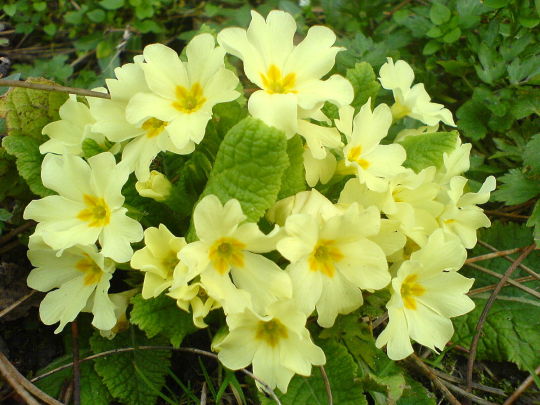
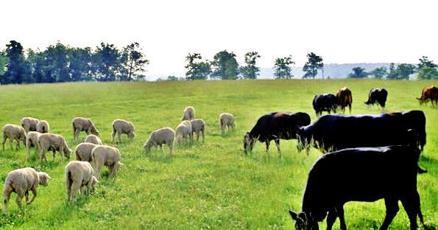
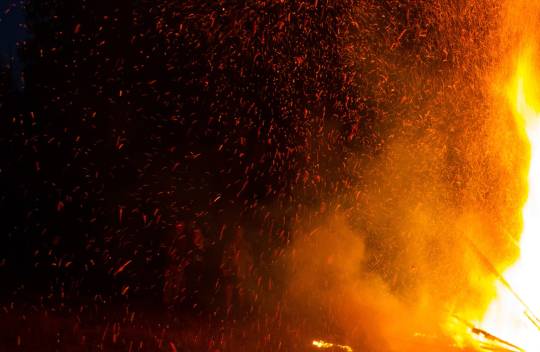
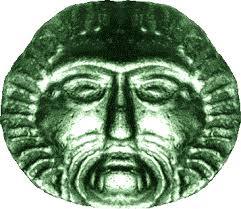
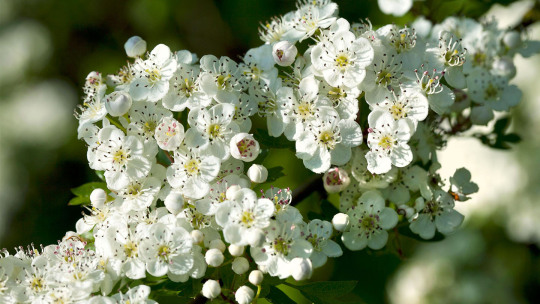
Spelling and Pronunciation
OI. Bealtaine (Bell-tin-Na) has more recently been written as I. Beltaine or Anglicized Beltane (Bell-tain). In the Cormac Glossary it is said to derive from the deity Bel and OI. 'Tene' meaning fire.
Dates
Most Reconstructionists celebrate Bealtaine on April 30th-May 1st, sundown to sundown. Iron age Irish (and other Celts) structured their days from sunset to sunset so while we now track this time as stretching over two days, they would have seen this period as one single day, being the first day of the month of May by the Gregorian calendar. Some Reconsructionists might prefer to celebrate by the Julian calendar which would place this holiday on May 13th-14th (by the Gregorian calendar), still of course from sundown to sundown. In the most traditional sense this holiday would have been celebrated when the livestock was moved from the winter grazing fields out to the summer grazing fields.
Importance in Mythos
Most mythological reference to this holiday comes in the form of the movement of peoples or invasions of peoples.
The mythological invasion of Partholon and his people occurred on Bealtaine and the plague that wiped them out also began on that date and lasted a week. The Tuath De Danann are said to have arrived on the island on Bealtine as well and lastly the Sons of Mil are said to have invaded on this date also (Macalister, 1940).
In later times when Christianity had made its mythologies the way of the land and the old deities were moved to the status of Fae this idea of movement and invasion seems to have persisted. Traditions hold that this date is a dangerous time for mortals as the aes sídhe are moving amongst the daoine sí and may stop by unsuspecting homes to ask for butter or perhaps some water, but if this request is granted they will steal the homes luck for the year.
I will make a note here that while the Cormac Glossary notes the deity Bel there is no Celtic/Gaelic deity of this name (though there is a Mesopotamian one) and this seems to cause a lot of confusion, especially when it comes to Wiccancentic ideas and articles. Cormac was likely referring to the Celtic/Gaelic deity Belenus NOT the Mesopotamian Bel. Belenus/Belenos was associated with the sun and healing and during the Gallo-Roman period was often noted to be the Gaelic Apollo. There is evidence to suggest that Belenus/Belenos was known throughout the Celtic/Gaelic world, though we don't have any specific information about how prominently he was worshiped in Ireland itself it is relatively safe to assume that the Iron age Irish would have known who he was.
Celebration Traditions
Like on Samhain, at the opposing 'end' of the year livestock were transitioned from one grazing area to another. While on Samhain, when the 'dark' half of the year begins and the livestock are moved in from summer grazing to winter grazing, Bealtaine is the opposite. It begins the 'light' half of the year and livestock are moved from the winter grazing out to the summer pastures. At both holidays to ensure healthy animals and protect them from any malicious factors great bonfires were built (most notably on the hill of Uisneach) and livestock would be driven between them.
There seems to be a traditional emphasis on the protection of homes, barns, livestock, peoples, and crops. Generally this seems to be a time when warding against ill luck for the community became a focus. Yellow, specifically yellow flowers (primrose, gorse or hawthorn blossoms), appear to have played a role in this as they have been used to decorate, but when exactly this tradition originated is unknown. The healing wells of Ireland and specifically the dew on the morning of Bealtaine have been thought to be important. Some traditions hold that the dew, when washed with will bring beauty, while others think if drank by the milk cows it would cause them to produce more, but again the origins of these traditions are relatively unknown.
Interesting History to take into Consideration
Given Bealtines long lasting history in Irish mythological tradition of being associated with mass movements of peoples and a need to protect ones family and community in this tumultuous time it is -possible- these ideas persist due to the movements (and possibly famines or plagues) during the "Megadrought" of the Bronze age (1250-1100 BCE). Most studies have focused on the effects of the Mediterranean at this time, but it is reasonable to assume the ripples of effects could have been felt strongly enough in Ireland to leave a lasting impression, especially since it is not outlandish to assume that people fleeing the Mediterranean area, which was no longer able to adequately sustain them, may have fled to the more temperate British Isles and passed on their trauma through oral tradition. This could possibly be backed up by looking at the etymology of 'Bel' not as referencing Beleus/Beleos but as referencing the Irish Balor (or perhaps they are different aspects of the same figure) who embodies not the life sustaining properties of the sun but the deadly and destructive ones. Balor balcbéimnech, 'Balor the strong smiter,' Balor birugerc, ' Balor of the piercing eye,' Balor mae Doit meic Néid, 'Balor son of Dot son of Néit.'
This is obviously only my personal opinion and can be taken or dismissed as one likes.
#celtic mythology#celtic reconstructionism#celtic paganism#celtic reconstructionist#celtic#Irish#irish mythology#irish reconstructionist#irish reconstructionism#irish paganism#beltaine#Bealtaine#Beltane#festival#fire festival#blackcrowing
223 notes
·
View notes
Text
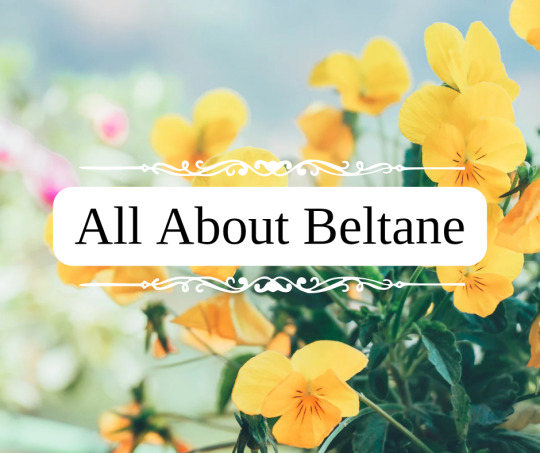
All About Beltane
Beltane, also known as Bealtaine in Irish, is a Gaelic holiday traditionally held on May 1st or the halfway point between the spring equinox and the summer solstice. It is believed to be named after the Celtic sun god Belenus. It was widely observed in Ireland, Scotland, and the Isle Of Man, and is one of the 4 major Celtic fire festivals. It is mentioned in even the earliest Irish literature and marked the beginning of summer and used as the marker to drive cattle into their summer pastures. Although public celebrations have mostly fallen out after the 20th century and many traditions have been mixed with other cultural holidays (such as the Roman holiday May Day), many Celtic Neopagans and Wiccans still celebrate, and many local traditions still continue, causing it to now get a cultural revival.
Traditionally, rituals were held to protect the livestock that moved pastures, along with crops, dairy products, and people, and to encourage growth. It was also important to appease the Aos Sí, or nature spirits/fairies, which were believed to be more active then.
According to early medieval texts in 908, druids would make two bonfires and drive cattle between them to protect them from disease. In the 18th and 19th centuries, bonfires continued to be an important part of the celebrations. Before the bonfires were lit, all hearth fires were put out, and then relit using the fire from the Beltane bonfires after the celebration.
Continuing into the 19th century, cattle were still driven over or between flames, or sometimes around the fires or made to leap over. The people themselves did as well for good luck and protection. Once the fires died down, people would dab themselves with the ashes and sprinkle them over their crops and livestock. Torches from the bonfires would also be brought home and carried around the home or boundaries, and also used to relight the hearth.
Food was also an important part of the Beltane festival, and usually included a feast of lamb, which, historically, was sacrificed. In 1769, it was written that a hot drink, called a caudle, made of eggs, butter, oatmeal, and milk was served, along with tossing a bit on the ground as an offering. A Beltane Bannock, a type of oatmeal cake, was also written to be important and had a few traditions around it.
In one tradition, the Beltane Bannock had nine knobs on it and each person would take the bannock and face the fire, proceeding to break off the knobs of bannock one at a time and tossing them behind their shoulder as an offering to the spirits for protection over their livestock and from predators (one for the cow, one for the sheep, one for the fox, etc). Afterwards, they would drink the caudle.
According to other 18th century writers, there was another Beltane Bannock tradition where the bannock would be cut into slices and one was marked with charcoal. The slices were then thrown into a bonnet and everyone would take one out while blindfolded. According to one writer, whoever pulled the marked bannock slice had to leap through the fire 3 times. According to another, the person would instead be pretend-thrown into the fire and for some time afterward people would talk about the person as if they were dead. This may have always been symbolic, or it may have been a tradition from a time where actual human sacrifice was used. This tradition was also near identical to May Day traditions that occurred in Wales and other parts of Europe, however.
Other traditions including flowers and plants were also observed, especially ones that evoked fire. Documents from the 19th century cite that yellow and white flowers, such as primrose, rowan, hawthorn, gorse, hazel, and marsh marigold was used and placed at doorways and windows. Sometimes they were strewn into garland, and other times they were made into bouquets, made into crosses, or fastened to them. They were also fastened to cows and milking/butter equipment.
Decorating a May Bush or May Bough was also a widespread tradition, and it usually consisted of a small tree or branch (typically hawthorn, rowan, holly, or sycamore) decorated with bright flowers, ribbons, candles, painted shells or egg shells from Easter, and more. In some traditions they also decorated it with gold and silver May Balls, which were hurling balls, that were then either given out to children or gifted to winners of a hurling match. It was also known as the only acceptable time to cut a thorn tree, as they were associated with fairies and may have also been a relic of worshipping tree spirits. It would either be decorated where it grew, or branches hung over windows, doors, roofs, and barns either inside or outside. Traditionally, it was the responsibility of the eldest of the house to decorate it.
The tree was usually left up until May 31st, but in some traditions it would be burned in the festival bonfire after singing and dancing around it. In Dublin and Belfast, May Bushes were brought into town and decorated by the whole neighborhood, with each neighborhood competing for the most beautiful bush. These competitions could also lead to neighborhoods attempting to steal others May Bushes, which eventually led to the May Bush being outlawed in Victorian times.
Appeasing the fairies was also a big part in Beltane celebrations, with many traditions revolving around offerings to the fairies and also warding them off, as there were many fears around them stealing dairy. One protection tradition was to leave 3 black coals under the butter churn. Another was to hang May Boughs on the milk pails. And yet another was to hang cattle tails in the barns. Flowers were also used to decorate the cattle's horns for good luck.
Farmers would also lead a procession around the boundaries of the farm and would "carry with them seeds of grain, implements of husbandry, the first well water, and the herb vervain (or rowan)", stopping at the four cardinal points of direction starting at the east, and performing rituals towards each direction at each stop. These processions were said to bring protection of their farm produce and encourage fertility. Some people also made the sign of the cross using milk on the backside of cattle for good luck.
As for fairy offerings, one tradition was to pour milk or leave food at places associated with the fairies such as "fairy trees". In Ireland, cattle were brought to "fairy forts" where a small amount of their blood was poured into the earth with prayers of the herd's safety. Sometimes, the blood would be left to dry and then be burnt.
Visiting holy wells was also a popular way to celebrate Beltane. Visitors would walk sunwise, moving from east to west, around the well while praying for health. They would then leave offerings of coins or cloth. The first water drawn from the well on Beltane was thought to be especially potent, and would bring good luck to the person who drew it.
Morning dew on Beltane was also thought to bring goodluck and health, and maidens would wash their face with it or roll in it at dawn or before sunrise on Beltane. It was also collected in a jar, left in sunlight, and then filtered. The dew was said to increase sexual attractiveness, maintain youthfulness, protect from sun damage, and ensure skin health during the ensuing year.
Modern day celebrations may vary from these more traditional festival activities, but many choose to incorporate or take inspiration from the traditions at least. Popular traditions still revolve around bonfires, feasts, decorating a May Bush, and focusing on protection and growth.
Beltane Associations
Colors - yellow, white, red, green
Food - lamb, milk and dairy, beef, bannocks, caudle, cakes
Animals - cattle, sheep, other herd animals
Items - primrose, rowan, hawthorn, gorse, hazel, marsh marigold, holly, sycamore, yellow and white flowers, flower garland, greenery, morning dew, dairy products
Crystals - citrine, fire agate, fire opal, carnelian, red and yellow jasper
Other - protection, fertility, good luck, fire, smoke, ash, sun, bonfires, farming
Ways To Celebrate
light a bonfire
jump over or dance around a bonfire
decorate a May Bush or May Bough
craft and hang flower garland
bake Beltane Bannocks
collect morning dew
create some caudle
ward and protect your home or property
leave offerings for the fairies
focus on protection, growth, and luck magic
enjoy time in the sun
have a feast
create a bouquet out of yellow and white flowers
visit a farm or petting zoo
#beltane#beltaine#bealtaine#celtic#gaelic#irish#scottish#pagan#witch#witchy#wicca#may day#magick#magic#magickal#grimoire#tradition#celebrate#bonfire#fire festival#witchcraft#spiritual#witchblr#witch community#paganism#pagan witch#celtic paganism#paganblr#about#dairy
33 notes
·
View notes
Text
I Got bored one time awhile ago and made a list of every prefix plus some into organised sections so I thought I might as well share.
All the ones that aren’t cannon to warriors, yet at lest are bold
Describing names
Colours: red, russet, copper, golden, amber, yellow, green, blue, violet, pink, white, gray, black, ebony, dark, pale, silver, brown, tawny, fallow
Pattern, Texture + Size: spot/ted, dapple, speckle, freckle, brindle, patch, mottle, ragged, tangle, kink, bristle, fuzzy, curl/y, wooly, soft, sleek, little, tiny, small, slight, short, tall, long, big, heavy, crooked, broken, half, stumpy, shred, torn, jagged
Actions + Character: flip, pounce, bounce, jump, hop, crouch, down, low, drift, flail, strike, running, fidget, mumble, whistle, snap, sneeze, shiver/ing, shining, flutter, fallen, lost, rush, fleet, quick, shy, sweet, brave, loud, quiet, wild, hope, wish,
Other: claw, whisker, dead, odd, one, spike, fringe, echo, song, hallow, haven
Elements
Time + Weather: day, night, dusk, dawn, morning, sky, sun/ny, moon, storm, lightning, thunder, cloud/y, mist/y, fog, snow, blizzard, ice, frost, dew, drizzle, rain, clear, wind, breeze, gale, shadow, shade, bright, light,
Earth/Water/Fire names: stone, rock, boulder, slate, flint, pebble, gravel, sand/y, dust, mud/dy, meadow, hill, rubble, river, ripple, whorl, float, rapid, shimmer, lake, swamp, marsh, wave, wet, bubbling, splash, puddle, pool, creek, fire, flame, flicker, flash, blaze, scorch, ember, spark, ash, soot, cinder, smoke
Plants
Trees: alder, aspen, birch, beech, cedar, cypress, pine, elm, willow, oak, larch, maple, bay, rowan, timber, bark, log, wood, twig, acorn, cone, seed, spire
Berry/Nut/Fruit/Herb: juniper, elder, sloe, holly, yew, mistle, bramble, hickory, hazel, chestnut, nut, apple, cherry, cranberry, olive, pear, plum, peach, chive, mint, fennel, sage, basil, mallow, parsley
Flowers: aster, poppy, primrose, rose, bluebell, marigold, tansy, pansy, briar, cherry, daisy, dandelion, daffodil, tulip, violet, lily, myrtle, thrift, yarrow, heather, lavender, blossom, bloom, flower, petal
Other: leaf, frond, fern, bracken, sorrel, hay, rye, oat, wheat, cotton, reed, pod, cinnamon, milkweed, grass, clover, weed, stem, sedge, gorse, furze, flax, nettle, thistle, ivy, moss, lichen, bush, vine, root, thorn, prickle, nectar
Animals
Mammals: mouse, rat, mole, vole, shrew, squirrel, hedgehog, bat, rabbit, hare, ferret, weasel, stoat, mink, marten, otter, hog, wolf, hound, fox, vixen, badger, deer, doe, stag, fawn, sheep, cow, pig, lion, tiger, leopard, lynx, milk
Birds: robin, jay, cardinal, thrush, sparrow, swallow, shrike, starling, rook, swift, dove, pigeon, crow, raven, duck, goose, heron, wren, finch, swan, stork, quail, gull, lark, owl, eagle, hawk, kestrel, buzzard, kite, hoot, feather, bird, egg, talon
Fish, Reptiles + Amphibians: pike, perch, pollack, trout, tench, cod, carp, bass, bream, eel, minnow, fin, snake, adder, lizard, turtle, frog, toad, newt
Bug type Names: bug, lady or ladybug, moth, spider, ant, snail, slug, beetle, bee, wasp, dragon or dragonfly, bumble, worm, maggot, cricket, fly, midge, web, honey
Skyclan + Warriorclan: Bella, Billy, Big, Harry, Harvey, Snook, Ebony, Monkey
71 notes
·
View notes
Text
The Highwayman: Part III - The Highwayman Comes Riding
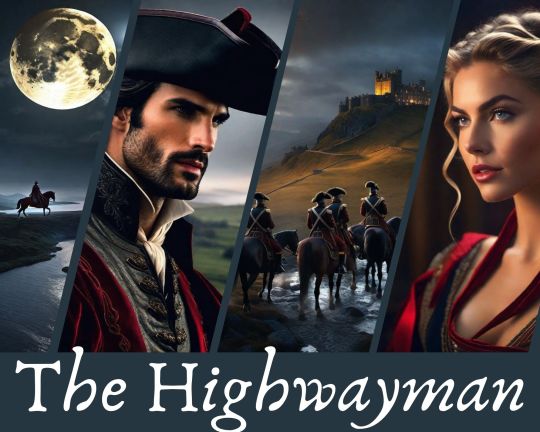
Fandom: TRR (Historical AU)
Pairing: Drake Walker x F!OC (Harper Gale)
Series Summary: On a dark, moonlit night, a highwayman's luck runs out...
Masterlist: The Highwayman
Chapter Summary: Drake arrives, but it's too late...
Word Count: 4,100
Rating/Warnings: M (swearing, physical violence, murder, grief, suicidal thoughts, main character death) Do not read if you are triggered by any of these things!
Chapter theme song:
A/N1: As with Part II of this series, this installment is also quite grim and dark. So read at your own peril. There is no happy ending. As before, I have made some changes to the original, but hopefully, these are for the better.
A/N2: This is my third and final submission for @choicesprompts January 2024 Song Rewrite Challenge. The song I chose to rewrite is The Highwayman by Loreena McKennit.

Part III - The Highwayman Comes Riding

The crack of a musket explodes out into the night.
I duck instinctively, pistols primed and itching to return fire...
...until I realise that the shot had come from the casement.
My throat constricts. "Harper..."
But she has vanished behind the plume of powder smoke that now obscures her window.
"Shit..."
I'd known something was wrong the moment I laid eyes on her. She'd been too tense, too still, sitting on that ledge, more akin to a doll than a flesh-and-blood woman...
...but I'd spotted the silvery gleam of the barrel too late, and now all hell has broken loose.
Fucking Beaumont.
I should never have let my guard down.
Heedless of the preservation of my own skin, I leap forward, fingers on triggers, desperate to reach her.
Another flash of orange...
...and my hat sails from atop my head as a bullet goes just wide of its mark.
I raise a weapon, volleys of lead peppering the thatch to my left and right...
...but I am quickly forced to confront the obvious.
I cannot risk it.
The darkness, in combination with the smoke screen being kicked up by the 'Coats flintlocks obscures my sight into the room, and Harper's location within.
And though I desire nothing more than to dispatch each and every one of Beaumont's whoresons to the depths of hell, the truth is that I'd be firing blind. And I wouldn't be able to live with myself if my bullet found Harper instead of a dragoon.
So, I have but one choice.
Flank the bastards.
Spinning 'round, I dash back down the length of the roof, bullets nipping at my coattails. Diving to the side, I return a pair of retaliatory shots in the general direction of the inn — careful to avoid the actual window — so the 'Coats are under no illusion as to the direction of my retreat.
Sliding down the thatch, I push off from the roof to land bodily atop the muck heap.
Not the most graceful of my escapes, I have to admit, but beggars can't be choosers. And I am pressed for time that I do not have.
Rolling off the pile of shit, I quickly sheath my spent pistols and lope towards the barn with sabre drawn instead.
Emile, the stable hand, had paid back my previous generosity by making me wise to the unsavoury nature of the guests that had descended on the inn. So, instead of hitching Drogon and the new palfrey up in a stall, I've taken the added precaution of hiding the horses out in the gorse.
But where I erred was thinking that the Greencoat patrol had sought the inn out for benign purposes. Because it sure as hell hadn't been me who'd plotted the course for them. In fact, I've always taken care to ensure that my tracks never led directly back to Harper.
Which begs the question... How the fuck did I end up walking into an ambush? With Gale strung up as bait?
My grip tenses on the hilt of my sword.
Someone had let the cat out of the bag. They must've. There's no other explanation.
Who? I have no clue. As there are a grand total of two souls who are privy to the secret that I frequent The Crown, and neither would betray me.
Not willingly, at least...
But, first things first.
Skirting along the shadow of the structure's perimeter, I arrive at the stable doors.
It appears quiet. But after being greeted by gunfire once already this eve, I am loath to take further chances.
Pinching up a handful of peddles, I toss them through the doorway. Only when no shots fire in reply, do I dare slip inside.
"Sir?" comes the hesitant query from within the shadows. "That ye? I heard musket fire an'—"
My sabre slices through the night. "Thought I'd be dead?"
The boy's countenance morphs into a mask of horror as the blade comes to rest 'neath his jaw. "Nay, sir! I'd never! I—"
"Care to swear on that?" I interject with a dangerous edge.
"On a tower of Bibles stacked on my parents' graves, sir!" Emile vouches with a tremble to his voice.
I assess the lad under the pale light of the moon. His face is ashen but his eyes glint with steadfast surety.
I lower my blade. "The 'Coats have Harper..."
The hand emits a gasp of disbelief. "Sacré dieu...!"
"...and I could use your assistance," I add, moving to the closest stall that houses a mount bearing Greencoat livery.
"Anything, sir," he proclaims earnestly. "Yerself an' Mistress Harper ha' always been good t' me!"
"Fetch a bag of oats," I direct as I grab the reins of the bay gelding. "And a length of rope if you have it."
"Right away, sir!"
While Emile sets about his task, I lead the Greencoat mount out onto the gangway. Reaching for the girth, I tighten it back up before slipping the bridle off and tossing it into the straw.
"The things ye requested, sir," huffs Emile, reappearing once more.
"Good," I approve, taking the sack of feed from him. "Now, help me lash this to the saddle."
Working in tandem, we quickly secure the decoy atop the horse. Shrugging out of my justacorps — on top of the retribution for Harper, that cunt of a Beaumont also owes me a new hat and coat — I sling the muck- and bullet hole-ridden covering over the sack to complete the trick.
"Think'll fall for it, sir?" asks Emile as he meets my eye from across the horse's neck.
"Better pray to God they do," I reply, slapping the mount on the rear to send it galloping out into the night. "Else this might very well be our last meeting."
Emile's throat bobs in consternation. "Best o' luck to ye, then, sir."
"Christ knows I'll need it," I accede, grasping his palm to press a gold ducat into it. "Now, make yourself scarce afore the dragoons show up."
With a quick nod, the lad disappears back into the gloom of the barn.
Withdrawing from the stables once more, I skirt 'round the far side of the building, careful to keep to the shadows. Hopping the low fence of the vegetable patch, I make my way towards the low door that leads into the kitchen.
Trying the handle, I find it unlocked. Pulling the heavy wooden door back, I slip warily inside.
The crash of boots above me confirms that the Greencoats have fallen for my ruse. But there is no guarantee that every last one of their dastardly lot plans to depart the inn.
Belvedere Beaumont may be a godless dog, but he is by no means a fool.
Which means I'll need to keep ahold of my wits... and weapons.
Pausing at the bottom of the short set of stone steps that lead up to the main hall, I spare a moment to quickly reload my flintlocks.
Slotting one gun back into my belt, I grasp the hilt of my sabre in one hand, and the second pistol in the other before ascending the stairs.
The hall is dark... and quiet.
Whatever patrons there may have been must've made themselves scarce upon the discharge of the first shot.
Honestly? I cannot blame them. I certainly would not wish to be caught on the wrong side of the dragoon's crossfire.
I clench my eyes shut. Please, let her be safe...
Moving through the hall like a ghost, I arrive at the main staircase.
Cocking my pistol, I proceed onto the first step with as much care as I can muster, even as every fibre of my body is raring to dash upwards as quickly as humanly possible.
Sticking to the wall, I inch my way slowly towards the second floor, flintlock before me, on guard for the faintest sound or movement.
Reaching the landing without incident, I am greeted by the wanton destruction left in the wake of the dragoon besiegement.
My jaw piques in ire.
This had been punition — pure and simple. The setting of a heavy-handed example to put the fear of God into the hearts of all those who may cross paths with Beaumont and his men.
A warning of what will befall those who dare defy the letter of the law.
I shake my head. I should never have involved—
A shadow moves in one of the rooms to my left.
Flattening myself against the wall, I sneak a peek through the doorway...
...and what I see roils my guts.
Robert Gale — the inn-keep — is hunched over the chest standing in front of the large, four-poster bed, his hands bound behind him, his shirt and hair matted with sweat. A dark puddle of blood pools at his feet.
Two 'Coats root through the things in the room, pocketing anything that catches their eye and fancy, sniggering amongst themselves.
A hiss of chagrin escapes me. "Putain de merde..."
There is punishment, and then there is persecution. And Harper's father is — without a shadow of a doubt — a victim of the latter. The extent of his wounds provides ample proof of Beaumont's abuse of his authority.
And I cannot allow myself to stand idly by in the face of this atrocity.
I step out of the gloom and into the doorway.
A floorboard creaks beneath my boot.
One of the dragoons glances up...
...but by the time his faculties have clocked the fact that I am foe, not friend, I have already splattered his brains onto the wall behind him.
His compatriot meets the same fate half a breath later, as he fumbles ineffectually for his musket, his body thudding to the floor as the second of my bullets also finds sharp and swift retribution.
Robert Gale's voice croaks out from the foot of the bed. "Ye should'a left them alone, lad..."
But even that simple act is too much for his broken body, and he starts to hack violently.
Taking three quick strides 'cross the room, I manage to grab the old man 'fore he keels over. "Easy now..."
He heaves a shuddering breath 'gainst my breast. "Now, we'll be strung up fer sure..."
"Nay," I counter softly, reaching behind him to loosen the bonds that secure his wrists. "You just lay the blame at my feet. Where it belongs."
Robert twists his neck up to regard me with bruised eyes and cracked lips. "Yer him... The Raven Rider..."
"Amongst other things..." I admit, lowering him as gently as I can to the floor.
The inn-keep hacks out a strained laugh. "Aye... I can see why she likes you..."
"Have you seen her?" I demand, shrugging out of my waistcoat to press it to the wound at his side.
"Nay," Robert replies hoarsely. "Not since they found the gold in her room..."
The icy hand of dread grips my heart. "Sweet Jesus...How the bloody hell did they even know where to look?"
"Théo..." comes the raspy confession. "He... He heard—"
I nearly choke on my own breath. "The window..."
We never closed the damn window...
Springing to my feet, I dash from the room, heedless of the sound of wood striking wood as my booted feet pound the length of the hallway.
How could I have let myself be such a careless fool!
Not only have I tarred the woman I love by virtue of our association, but I've unwittingly led the bastards right to her! And if they found out about the gold, then...
I cannot allow myself to even think on that.
Skidding to a stop in front of the last doorway, I throw myself inside...
...and skid to an abrupt halt as I lay eyes on the horror spread out before of me.
"No..."
The dogged denial slips from my tongue in a whisper.
But my lack of acceptance does nothing to assuage the merciless truth of the reality that assaults me like a thousand knives to my chest.
Harper lies prone in the moonlight, bound and gagged, her golden tresses soaked in the slick crimson of her blood.
"No... No..."
My feet carry me unthinkingly to her listless form beneath the casement — the window of which sits still ajar — and I crash to my knees at her side.
Grasping her by the shoulders, I pull her to me with trembling hands, praying under my breath, hoping against hope that it's a mere trick of the night, a cruel misjudgement, a sordid nightmare that I have somehow stumbled into, soon to awake from...
...but even though her skin still feels warm to the touch, no breath issues from her chest and those hazel eyes that once sparkled with magic and love now stare dully out into the night.
My nails dig into her flesh as my body bows over hers. "Oh, God... Please... No..."
But if the Almighty Lord hears my plea, He is either a heartless bastard or an impotent fraud because He ignores my beseeachment. And she remains unmoving 'gainst my heart.
"NO!!!"
The delegation roars forth from my chest with a force that is naked in its brutality. The heathen keen echoes out into the night as the bitter taste of anguish engulfs my throat and my soul shatters 'neath the stars.
I am too late. And she is dead.
Shot in the heart and left to bleed out on the cold floor like a dog. Alone. Without any assurances or prayer.
All because I'd allowed my heart to sway my head. Convincing myself that despite all my prior misdeeds, I could nevertheless steal a future for myself. A future I had no right or claim to. A future that was more akin to the spectre of a mirage than any flesh-and-blood destiny. A future that was doomed from the start.
Yet my covetousness knew no bounds. And blinded as I had been by the promise of the lie I'd weaved not just myself but Harper as well, I'd led us into the mire of disaster.
"It should've been me..." I rasp into her neck as anguish blurs my vision. "It fucking should've been me..."
I hear the floorboards strain behind me. But I care not. I have no words or sentiment left. And if it's one of Beaumont's enterprising men come to shoot me in the back? Well, then at least they'll be doing me the favour of putting me out of my luckless misery.
Because the knowledge that I have doomed the woman I love cuts deeper than any mortal knife could.
And I've lost the right to live anyway.
"Imma sorry, lad..." says Robert Gale, laying a calloused hand on my shoulder, his own voice cracking.
I shrug the gesture off. I don't deserve his pity. Let alone his succour. I am the one holding the body of his dead daughter in my arms. If anything, he should be setting on me to tear limb from limb in payment for my sins.
Yet, he does no such thing.
"Had I know afore tonight 'bout ye..." He heaves a hoarse breath from above me. "But I s'pose we all had our secrets... And I know it inna any consolation as of now, but we'll bury her 'neath the oak tree. Next t' her mother. That way ye can—"
"Them," I bite out through clenched teeth.
The old man shifts. "What do ye—?"
"She was with child," I grit, reaching up to pull the bloodied gag from her face.
Robert falls into deathly silence beside me.
"So, raise your hand," I tell him bluntly as I pull her eyes gently closed. "Beat me. Wring my neck. Kill me, for all I care. For this is the only opportunity I'll afford you to exact your just vengeance upon me."
"Ye must think very little o' me, if ye think I'd strike a grieving man," rebuts the inn-keep with a hint of steel. "Let alone one who loved my daughter so."
"Then you are a better man than me," I reply solemnly, leaning in one last time to lay a kiss on her lifeless lips.
"Imma'n older man," he corrects as I gently return Harper's head to the floor. "Who's stood where yer standin'. So, I can afford some clemency. 'Specially in this bitter hour."
"You might come to regret your choice," I reply, forcing myself back to my feet. "As I bring nothing but death. And our paths will not cross again after tonight."
"Where ye goin'?" comes the flummoxed query as I push past him.
I throw my reply carelessly over my shoulder. "To exact vengeance of my own."
"They'll kill ye, lad!" Robert calls after me as I stride from the room. "They'll hang ye fer murder! And her death will've been fer n—!"
"I'm a dead man anyway."
Without caring to look back, I let my boots carry me back 'cross the corridor to retrieve my weapons from where I'd left them in the master bedroom.
Reloading the pistols on the fly, I stash them in my belt and I beat a determined path back to the lower level of the inn and out into the night.
The crash of the door 'gainst the wall catches unawares the pair of dragoons that had been left to stand watch on the exterior. But by the time they turn towards me, I have already run both of them through.
Leaving the sods to bleed out in the mud, I plunge into the darkness rising before me.
The cold, winter air whips through my hair, stinging my eyes and my lips in sharp contrast to the hot blood slithering between my knuckles.
But I pay it no need. For I have but one goal. One mission.
To take every soul I can into the night.
Because death? It is all but assured for me. As whether I go by my own bullet or a Greencoat's, it is simply a matter of choice at this point. For I have no reason left to live.
My world turned to ash the moment she died. And there is nothing left to salvage.
Coming to a halt some ways off from the inn, I shoot a sharp whistle into the depths of the murk. A shadowy form raises its head from the gorse, and in the next instant, Drogon is trotting eagerly towards me, the new palfrey in tow.
"Change of plans, mon gross," I advise as he comes to a stop in front of me, breath steaming in the moonlight. "And I don't think you're going to like it..."
The Merèns regards me for a moment, as if sensing the shift in my soul, before letting out a world-weary sigh.
"You always were far too opinionated," I tell him dryly, reaching up to untether the palfrey from his saddle.
Turning the bay towards the stables, I give it a slap on the rump to send it on its way. With Harper gone, I have no further use for the horse. And Emile will ensure it is well cared for.
The stallion shakes his head at me as I swing myself onto his back. But I allow him no further opportunity for protest as I gather the reins in one hand, and point him north.
"Hue!"
Upon command, Drogon leaps forward, and the night becomes a blur as we fly across the moor, like an ill wish upon the wind, seeking our quarry 'neath the path of the stars.
I have no clue for how long we ride. The silvery eye of the hunter's moon casts an eerie pall over the land, distorting any earthly sense of time or distance as its lunar magic stretches shadows and swallows minutes.
Eventually, though, from out of the darkness and the mist appears a ghostly glow, bobbing on the brow of the hill.
"Beaumont," I growl, watching the company ride closer.
They must have caught the horse and realised the nature of the ruse they had fallen prey to.
But it matters not. The time for tricks and cons has passed. There is no more running... No more hiding. No more trying to cheat or contrive our fates. The last of the road has run out.
It is judgment hour.
Wrenching the flintlocks from my belt, I press Drogon forward, down into the valley, down into the well of our doom.
Yet a strange sense of calm blankets me as we draw level with the oncoming troop. Perhaps because my heart already stopped beating the moment I laid eyes on her. And this last, earthly act is merely a formality. Or, I'm so drunk on the potent potion of grief and bloodlust that swirls through my veins that I've become numb to all else.
Either way, I am a shadow of the man I once was. And welcome the sweet promise of release.
The reins slip from my fingers as I raise the pistols to sight my shot.
The figures of men and horses coalesce from out of the gloom, torches borne aloft.
I reach the edge of the sphere of light...
... and let the first shot fly.
The lead dragoon's eyes widen in surprise as the crack of flint 'gainst frizzen ignites the black powder in the pan, splintering the calm of the night.
The lead round explodes out of the barrel in a flash of smoke and fire, hurtling through the air to imbed itself in the soft flesh of the man's cheek, shattering teeth and bone as it goes.
The shock of the impact causes the 'Coat to jerk back on the length of his reins, pulling his horse into the path of its neighbour.
Taking advantage of the confusion, I fire another round into the heaving mess of bodies, catching a horse in the shoulder, causing it to throw its rider from its back.
Cries of horror and surprise rise up as the precisely stacked formation careens into itself, turning both man and beast into a maelstrom of panic.
Slinging the spent weapons into the night, I whirl Drogon back 'round, his hooves rearing into the air as he seeks to redirect the sharpness of his momentum.
Whipping my sabre from its sheath, a hellish howl erupts from my throat as I point the tip of the blade across the narrow divide in vengeful promise.
"BEAUMONT!"
A glint of gold flashes in the middle of the fray as my target snaps his head up at the sound of his name.
"Shoot him, you whelps!" screams the captain, grabbing for his own pistol. "Blast him dead!"
But I am already charging forward.
Shots crack out into the night as I bear down upon my mark...
...and there is but one prayer on my lips.
"I am coming, mon coeur..."
I am almost upon the wall of dragoons when I feel Drogon stumble. Another round pierces my gut a breath later. A third lodges in my shoulder.
But still, I urge the stallion on...
...until his knees give way in the face of the desperate volley of bullets and he careens into the mud, taking me with him, mere steps from my goal.
A thousand pounds of horseflesh crashes down on me, pinning my leg 'neath the weight. My sabre clatters from my hand to vanish into the tangles of the gorse beside me.
The back of my head collides with the ground, and I find myself staring up into the black expense above me, my body broken, my senses reeling.
Drogon lifts his head briefly, attempting to pull himself to his feet, before succumbing to the inherent futility of the exercise with a mournful sigh.
"It's alright, mon gross," I whisper, attempting to comfort the wounded beast lying atop me, even as my vision skips and my lungs struggle for breath as a familiar wetness drenches my shirt.
This is not the way I planned to go. But it seems I left what remained of my luck in that cramped room where my love had blossomed and then died.
Fitting, really...
A pistol clicks above me.
With the last of my strength, I reach beneath my shirt, where Harper's talisman lies coiled 'gainst my heart.
Twisting the damp silk 'round my finger, I close my eyes with a final exhale.
…look for me by the moonlight.

They say that in the depths of the dark — when the moon is high and full — that the sound of hooves may be heard, galloping 'cross the moor...
And though you may not glimpse it, a ghostly rider's there. Searching for his love, they say, who gave her life for his...
If he finds her, 'tis not known; but he made a solemn vow to her. And a promise bound in blood and silk, is a promise that must be filled...
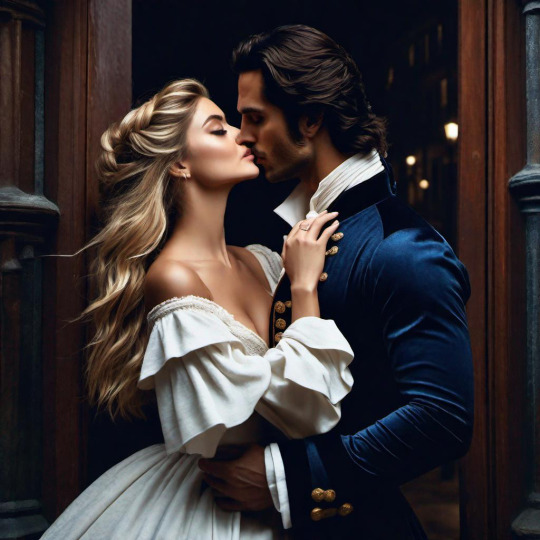

Permatags
@twinkleallnight @lovingchoices14 @kingliam2019 @petiteboheme @angelasscribbles @aussiegurl1234 @nestledonthaveone @queen-arabella-of-cordonia @tessa-liam @alyshak92 @secretaryunpaid @princessleac1 @walkerdrakewalker @tinkie1973 @twinkle-320 @knaussal @nikkis1983 @lunaseasblog @ficloverevie @indiana-jr @differenttyphoonwerewolf @kristinamae093 @eversoaringqueen12 @peonierose @3pawandme @alexabeta @veebug8 @fanfiction-she-wrote @queenmiarys @lancelotsimp @coco-lina-s @lolablackwrites @ivyflowers13 @persephone13 @hollygirl1269 @adri-ja-96 @harleybeaumont @katedrakeohd @uneravine @alj4890
#harper gale#drake walker#the royal romance#the highwayman#trr au#song rewrite#choicesprompts#historical au
35 notes
·
View notes
Text
We were alive that evening, on the north Yorkshire moors,
in a valley of scuffed hills and smouldering gorse.
Pheasants strutted, their feathers as richly patterned
as Moroccan rugs, past the old Roma caravan—
candles, a rose-cushioned bed, etched glass—
that I'd hired to imagine us gipsies
as our bacon and bean stew bubbled,
as you built a fire, moustached, shirt-sleeves rolled.
It kindled and started to lick, and you laughed
in your muddy boots, there in the wild—
or as close as we can now get to the wild—
skinning up a joint with dirty hands, sloshing wine
into beakers, the sky turning heather with night,
the moon a huge cauldron of light,
the chill wind blasting away our mortgage,
emails, bills, TV, our broken washing machine.
Smoke and stars meant my thoughts loosened,
and took off like the owls that circled overhead,
and I knew your hands would later catch in my hair,
hoped the wedding ring on them never seemed a snare—
for if you were a traveller I would not make you settle,
but would have you follow your own weather,
and if you were a hawk I would not have you hooded,
but would watch, dry-mouthed, as you hung above the fields,
and if you were a rabbit I would not want you tame,
but would watch you gambolling through the bracken,
though there is dark meat packed around your ribs,
and the hawk hangs in the skies.
The Caravan by Clare Pollard
16 notes
·
View notes
Text
Etymology of the Stark’s Names
Eddard, Ned: misspelling of Edward, a name of Anglo-Saxon origin composed by the words ēad (wealth, fortune, prosperous) and weard (guardian, protector). His name could be a reference to Edward the Confessor, patron saint of England, the monarchy of England and difficult marriages, or to Edward the Martyr.
Catelyn: a variation of the Irish name Caitlin, which derivates from Katherine and has long been associated with the Greek word katharos (pure, immaculate). Her name could be a reference to Saint Katherine, the patron saint of unmarried girls, maidens and spinsters, craftmen who work with wheels (potters, spinners, millers, knife sharpeners, mechanics), dying people and nurses, jurists and lawyers, educators in general (scholars, archivists, students and schoolchildren, philosophers, librarians and libraries), secretaries and preachers.
Robb: from Robert, a name of proto-Germanic origin composed by the words hroth (fame, glory, honour, praise, renown) and berth (bright, light, shining).
Jon: either a misspelling of John, which is the transliterated and contracted form of the Hebrew name Yehochanan (Yahweh is gracious, merciful) or a shortening of Jonathan (Yahweh has given). There are a lot of saints called John, but the most important is John the Apostle, patron of love, loyalty, friendship, writers in general (authors, scribes, editors, publishers), burn-victims, poison-victims, art-dealers, examinations, scholars and theologians. There's also a Saint Jonathan, whose attributes are bow and arrow and who represents friendship and honesty.
Sansa: most likely named after the stanza, a group of lines within a poem, usually set off from others by a blank line or indentation.
Arya: most likely named after the nymph Aria or Areia, which in Ancient Greek means "warlike." In music, an aria is a self-contained piece for one voice, with or without orchestral accompaniment. Given that all the metaphors for songs and dances being battles and wars in the series, her name could be foreshadowing some crucial role in the War for the Dawn 2.0.
Brandon, Bran: it could be a variation of the Irish name Breandán (prince, king, chieftain) or the Anglo-Saxon surname Brandon, composed by brōm (gorse shrub) and dūn (hill) or brant (deep, steep) and dūn (hill). I'm pretty sure there was a variety of gorse called the lupine, but don't quote me on that. In Old Welsh, the word Brân means "crow, little raven." It could also come from the surname Brand (sword) which derivated from the Old French word brandon (burning material to set fire).
Rickon, Rickard: Rickon is a surname which means “son of Richard.” Rickard is a variation of the name Richard, a name of proto-Germanic origin, composed by the words rīk (ruler, leader, king) and hardu (strong, brave, hardy). Maybe foreshadowing Rickon becoming King in the North? There's also a Saint Richard patron of Wessex.
Benjen: from Benjamin, an Hebrew name which means "son of the right (hand)" although it could also means "son of my days." Often used for the youngest son of a family, specially if the parents are unlikely to have more children.
Lyanna: most likely a misspelling of Eliana. In Hebrew, the name can be literally translated to “my God answered me” or “God answered my prayer.” Eliana could also come from the Late Latin name Aeliāna, the femenine form of Aeliānus (of the sun), or from the Greek name Helen or Helene. Lyanna's name was probably picked to parallel her to Elia, both victims of reproductive abuse at Rhaegar's hands, and as a reference to Helene's abduction.
#asoiaf#valyrianscrolls#my meta#ned stark#catelyn stark#robb stark#jon snow#sansa stark#arya stark#bran stark#brandon stark#rickon stark#rickard stark#lyanna stark#benjen stark#anti rhaegar targaryen#elia martell
195 notes
·
View notes
Note
Oh almighty Bones, why is he called Brushblaze? I keep thinking of a hair brush. Is it a plant?
Brushblaze! A save from Onestar's Confession, previously just Brushpaw. The prefix actually comes from a habitat. "Brush" is scraggly, bushy scrubland without trees. In the WindClan moor, brush is dominated by heather and gorse.
Tallstar picked it for Leo's spiky tufts. If he had chosen his own Clanmew name, he would have picked "Lion." But, he was a BloodClan trader who joined because of a massive crush on Onewhisker so he wasn't looking to argue.
He was an adult at this point, by the way, an apprentice name was supposed to just be a formality. It got delayed due to the destruction of the White Hart.
"Blaze" is the first suffix Onestar ever gave. When WindClan came to the Lake, they needed to hold their first Muirburn to turn their territory into a moorland. Moorland is a unique biome that is managed through fire and grazing; so this was an important step in settling the area.
But Mudclaw and his rebels sabotaged the burn so they could attack Onewhisker. Brushpaw fought valiantly, and was almost killed in the process. But when the tides turned thanks to ThunderClan, he was able to get out with only a nasty scar on his neck.
So, he was named "Brushblaze" for the fire that night, and the companion who joined along with him was named "Snapstorm" for the rain that put the fires out.
#better bones au#BB!Brushblaze#Poor Cranberrypaw had to wait a little longer lmao#She's like COME ON I WAS COOL TOO#But hey at least she gets to be an apprentice with Drizzle for longer.#I imagine Onestar's names got more 'standard' with time#At first he was really creative and meaningful with them#But he started changing a lot after Mudclaw's assassination attempt
50 notes
·
View notes
Text
Pyrophytes,
plants of fire. plants that Need fire (pyrophiles). disturbance is natural and good, as such so is fire (so are we) (it is about moderation and variation). destroyed patches make a mosaic of complex diversity.
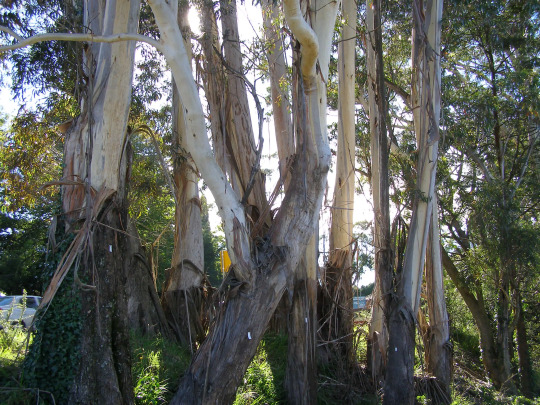
eucalyptus. Shaggy peeling bark + (toxic) oils = burns burns burns. explodes. but only fire can destroy the resin on their cones, so this is purposeful, they need it.

gorse. Very flammable. hot and dry (summer or fire) crisps and twists their pods to burst and spread their seeds.

Cyrtanthus ventricosus fire lily. Blooms right after fire, so it is the only place for pollinators to go, standing alone bright red and flourishing against stark white grey black ash,
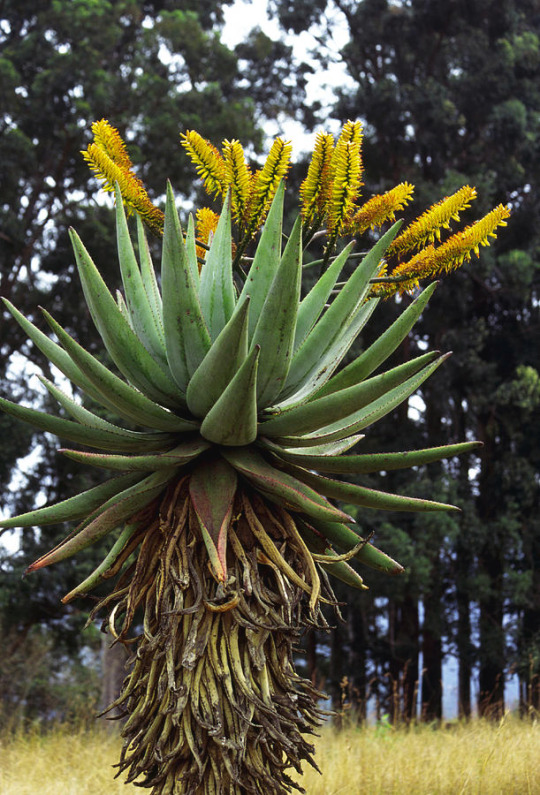
South African aloes with dead succulent leaves to wear as fire-armor.
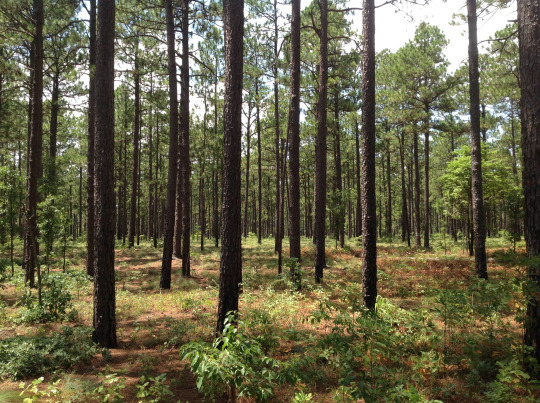
longleaf pine that keep their branches safe out of fire’s reach,
and more. And more! Many, actually. Fire can protect these plants from invasives. Fire-maintained habitats of pyrophile plants defend themselves from invasives that get burned. stop the fires and the invasives can come in and wipe out plants therefore biomes therefore So Much, many of which are endangered (longleaf pine savanna at only 3% of its historical range...........)
#miaow#plants#ecology#botany#biology#conservation#prescribed fire#prescribed burn#forestry#forest management
102 notes
·
View notes
Text
here’s a poem for you! there was a gorse fire on the hill a year ago and only in the parts where the blaze happened have hundreds of purple flowers sprung up
21 notes
·
View notes